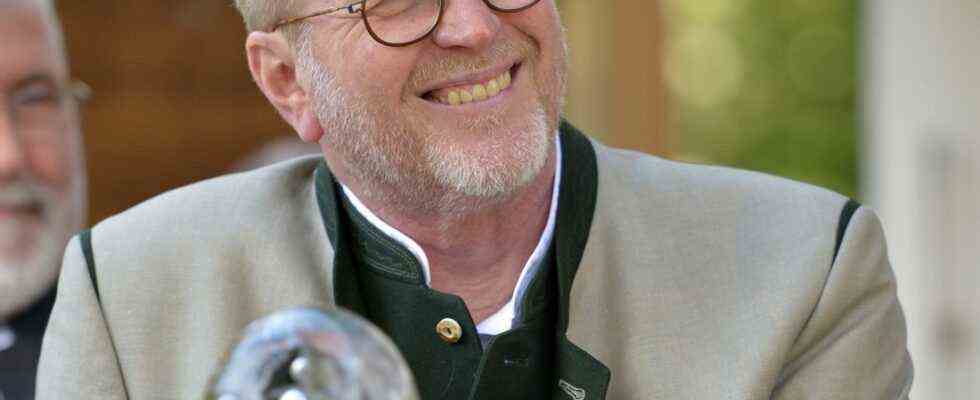When the “Bavarian language root” was presented to former State Chancellor and Environment Minister Marcel Huber, 63, in the garden of the Gotzinger drum inn in Weyarn (Miesbach district) on Friday afternoon, the weather was great. The climate was much more pleasant than in 2013, when Marcel Huber and Prime Minister Horst Seehofer stood in the rain. Namely in Niederalteich, where a flood disaster struck the region. At the time, Huber spoke in dialect throughout, “I wouldn’t be any different,” he said in Weyarn. In such a situation, politicians have to smack their lips (talk) just as authentically as the population afflicted by the disaster.
As a long-time member of the state government, the CSU politician brought the Central Bavarian idiom “on a par with our standard language”, said Chairman Sepp Obermeier of the Bavarian Language Association. Huber thus fulfilled the award criterion “as an avowed native speaker exception among Bavarian state politicians”. Bavarian politicians should also be recognized by their tongue, said Obermeier.
The dusty Seppl cliché is anyway unfounded
Due to the corona pandemic, the 17th awarding of the language prize took place this year without the scope of the Straubing Gäubodenvolksfest. Laudator Reinhard Wittmann, the former head of literature at Bayerischer Rundfunk, also praised Huber for his public use of the dialectal mother tongue. Huber knows how to confidently switch between basic dialectal dialect and southern high German – the two levels of the traditional language culture in old Bavaria. That is a code switching, often in one sentence, which reliably refutes the old-fashioned cliché of the superiority of the north German regiolect. With this, Huber is a role model for his compatriots, who often suffered from a cultural inferiority complex and imitated northern German colloquial language in order not to be considered provincial. The prejudice that is the cause of this is also spread stereotypically by the Bavarian media.
Wittmann explained that the dusty sepulchral cliché from the 18th century had not only fallen hopelessly out of time, but was in any case unfounded, since Bavarian is a language that is as rich in history as it is modern, shaped by the world culture of the Romans and with a significant share in it the history of German literature. That is why Bavarian is ideally suited for the internationalized world of the 21st century, in which multilingualism is becoming normal.
The audience’s delight in the speakers and the award winner ultimately culminated in the fact that Marcel Huber revealed how he got his first name. His great-grandmother, he said, was called Marcellina, that would be his name too if he had become a girl. Ultimately, he became a Marcel – or Massl, as Horst Seehofer called him.

